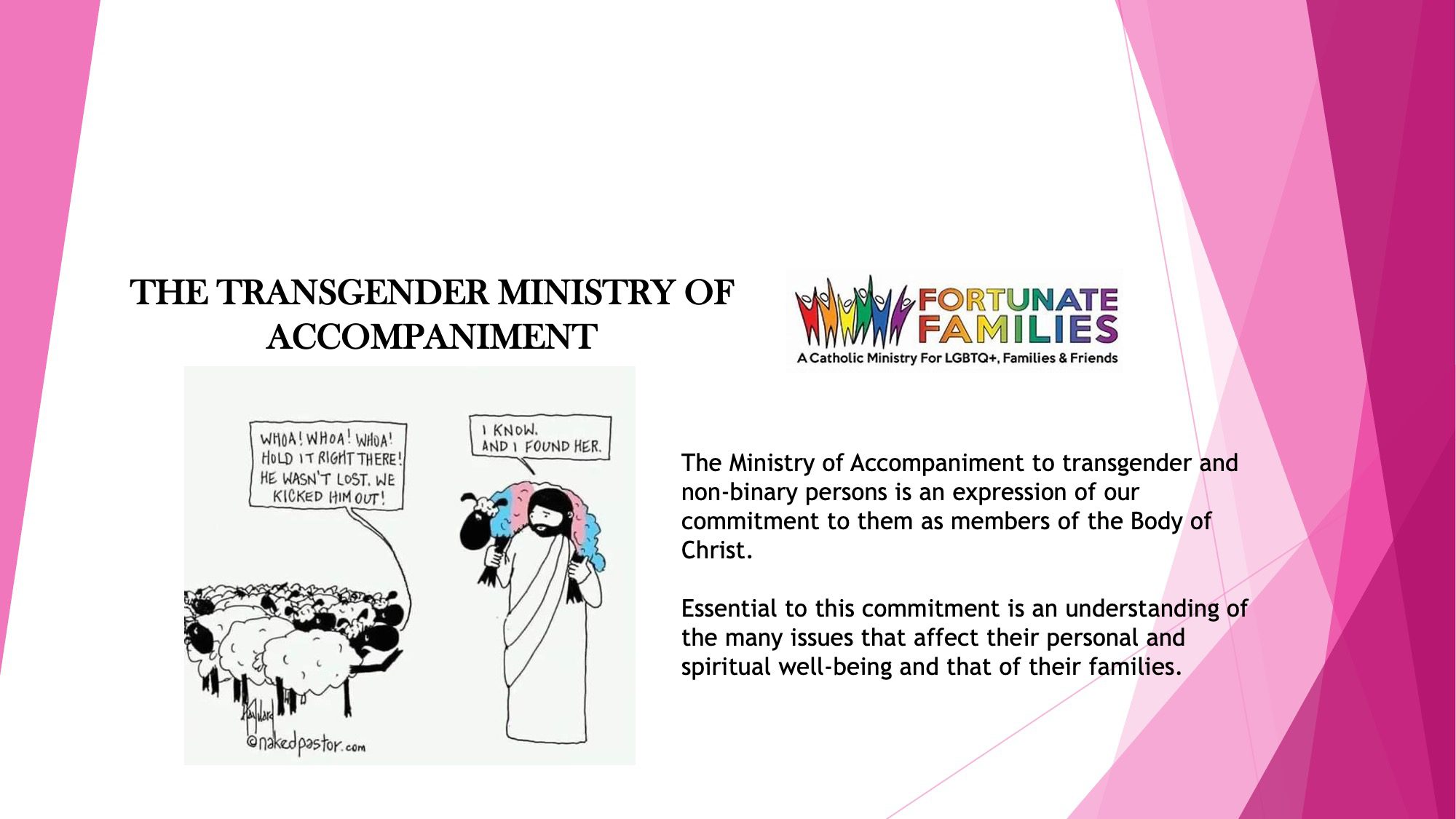
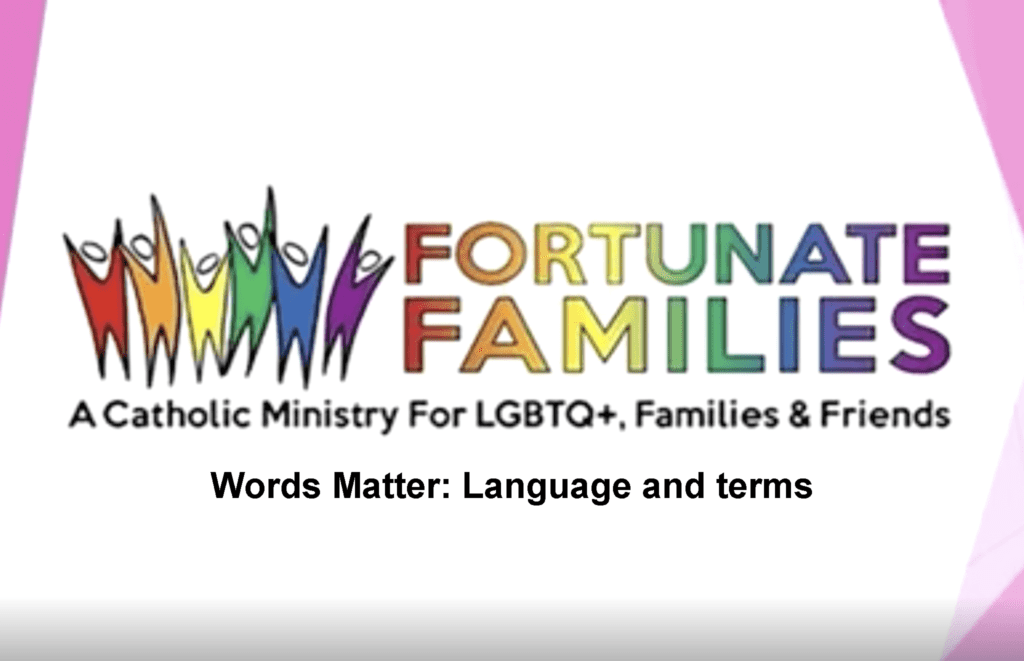
It is more important to be understanding, than to fully understand transgender terminology. We are asked to respect the way each transgender person uses their own language and consistently use the words (e.g. names, pronouns) they request us to use in order to respect their inherent dignity.
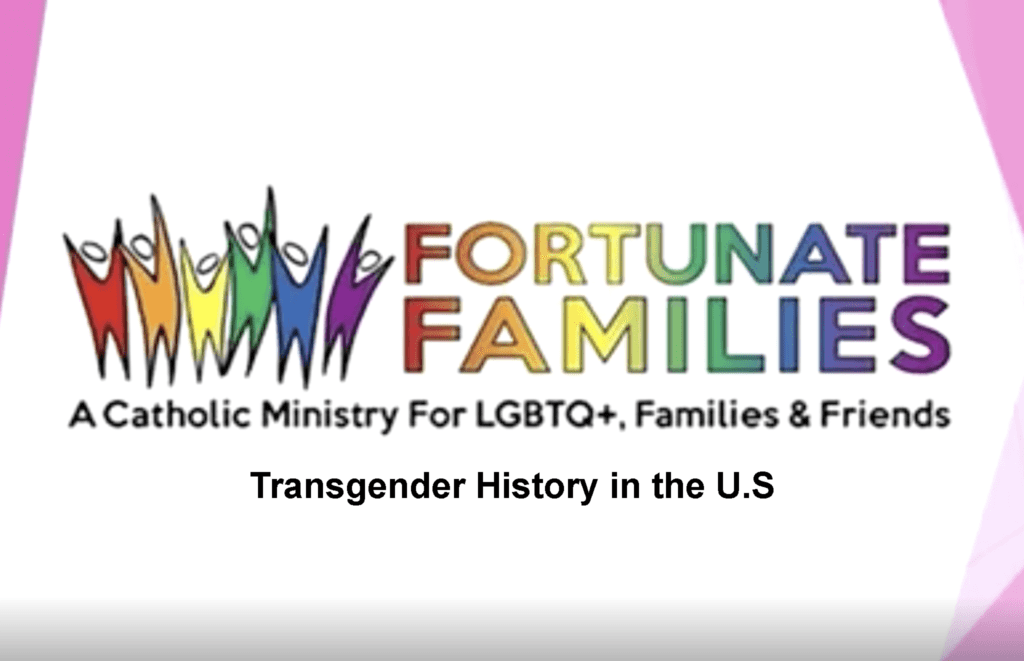
To better accompany transgender and non-binary persons, it is important to know and understand that their lived reality is not something new.
This session will help you understand past and recent history, in order to better walk with and accompany them in the future.
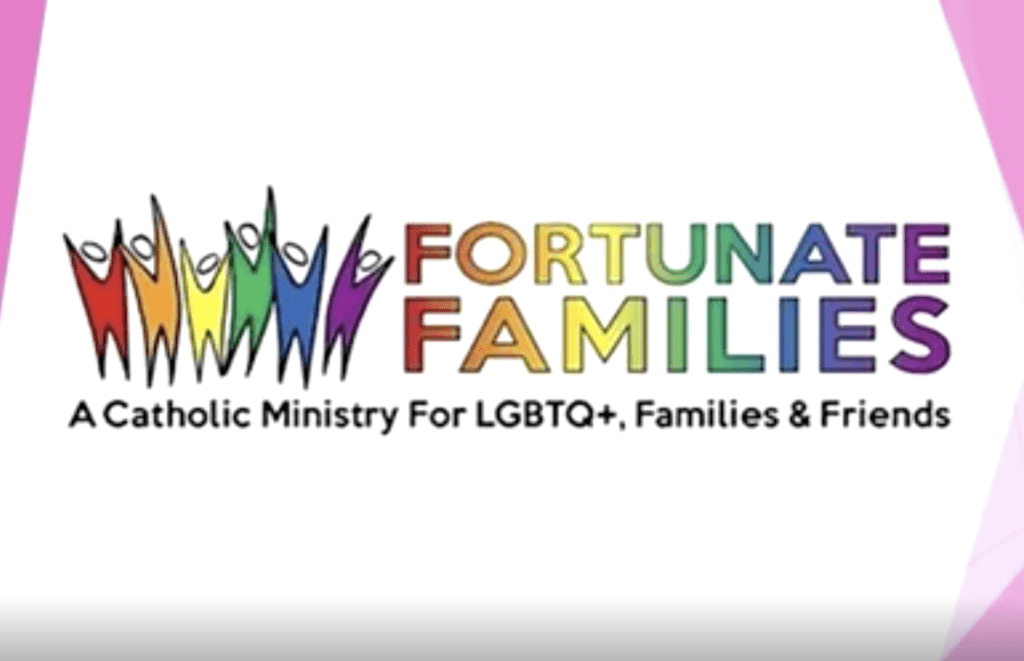
When the authentic experience of transgender and non-binary people’s lives do not align with the current official teaching of the Catholic Church, it is crucially important to have an understanding of other solid teachings of the Church that have direct bearing on their lives. But those are most often not addressed in this context—and those teachings are the Primacy of Conscience and the Development of Doctrine.
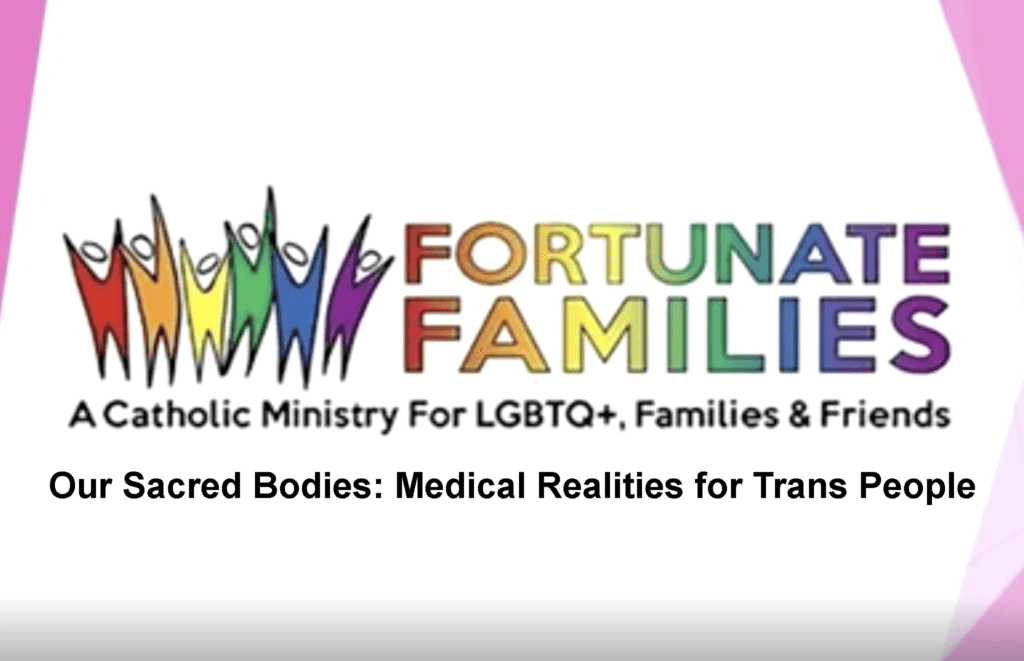
It is important to understand both past and current practices of medical care available to transgender persons.
What causes a person to be transgender? What are the options for care? Is there regret ‘after’ transition? Know the basics. Learn the facts.
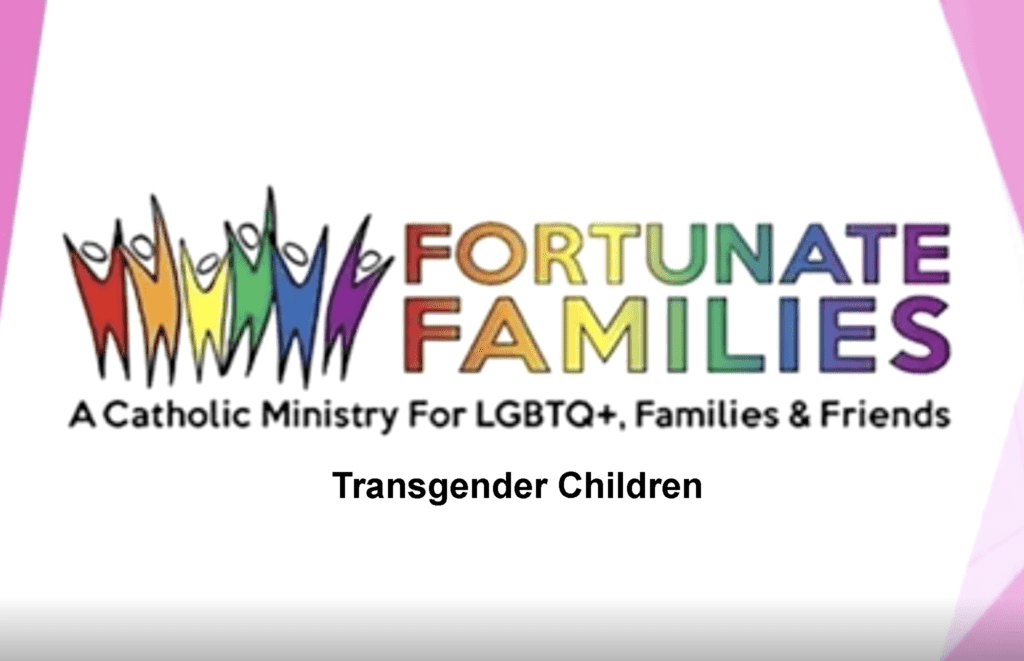
At an early age, transgender children know they are different, that their sex assigned at birth does not match their internal identity.
As ministers to transgender persons and their families, it is extremely important to understand the complex issues.
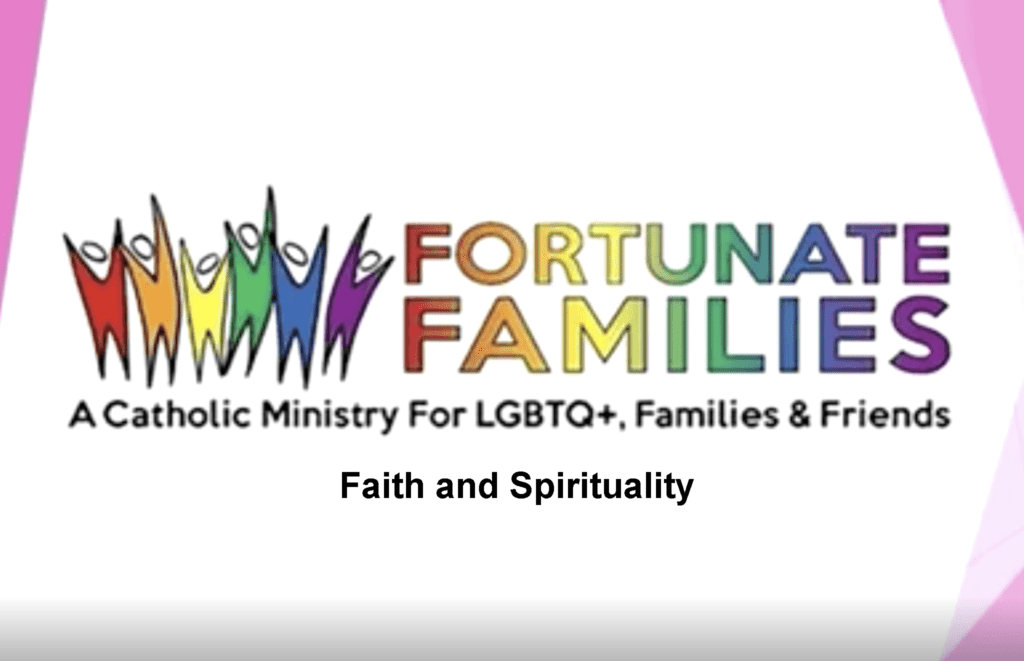
Transgender persons are often characterized as rejecting God and faith. Because of this mischaracterization they are often rejected by their faith communities.
In this session, two transgender persons describe what their belief and trust in God has meant to their lives in the context of their faith journey.